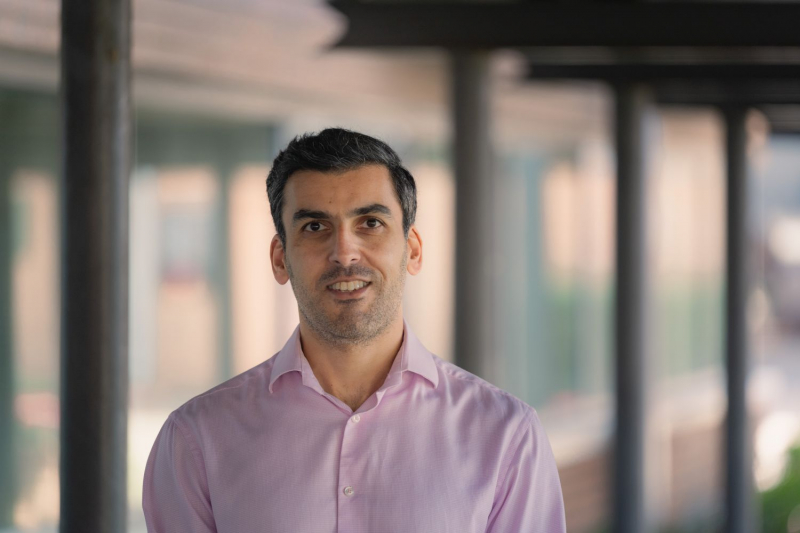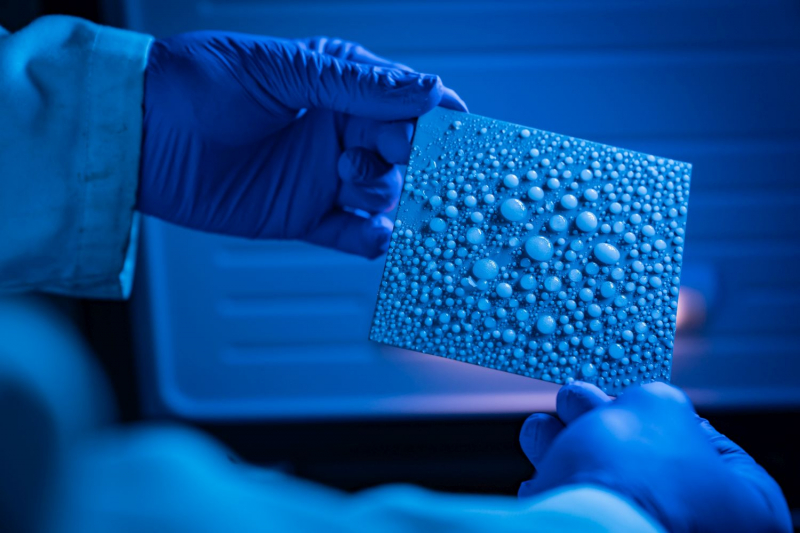For many academics, there can be a disconnect between the fundamental research being done and the commercial applications of that research. But for Hadi Ghasemi, Ph.D., Cullen Associate Professor of Mechanical Engineering, he sees this as a vital component when it comes to research benefiting society.
“The fundamental research that we do is important, but it's much harder to take that fundamental science and to develop something that can benefit society,” he said. “In my research, over the last eight years now, I have been working on anti-icing surfaces and we had done lots of fundamental research on that one. It was important that we could commercialize several technologies, and some of these technologies have been implemented.”
Ghasemi is the co-founder and CTO of Elemental Coatings, which applies his research and his team's research to anti-icing products. In addition to private investments, the company received a $750,000 grant from the Air Force Research Laboratory and Boeing recently as well. It is this innovation and inventiveness that was recognized by his election to the National Academy of Inventor's (NAI) 2022 class of Senior Members. According to the NAI, the class of 83 members this year hails from 41 research universities, and are named inventors on more than 1,090 U.S. patents.
Ghaesmi acknowledged that the process had been tough for him at times, when it came to taking technology development in academia to a commercial setting, calling it an “unpaved road” for himself.
“I think it paid off, and I think for future generations, the lessons that I learned through this path will be really helpful for me to share,” he said. “It's becoming more important because the public demands more from academia to work on something with social impact.”
Ghasemi joined the Cullen College of Engineering for the Fall 2014 semester, following a postdoctoral associate position at the Massachusetts Institute of Technology. He earned his doctorate in Mechanical Engineering from the University of Toronto in 2011.
When asked how he best generates ideas, Ghasemi said they usually come to him when he's not focused on his day-to-day work.
“Most of the time, they come to my mind when I don't have that much external stimulus,” he said, explaining his process. “Most of the time during the day, you are busy with lots of emails, talking to people... Those are the times that none of these ideas come to my mind. Most of these ideas come to my mind when I'm working out, or when I'm going running. That's a time that I don't need to pay attention to much. And I can think about some of the things that I have in my mind. I have a better self reflection, or internal connection. When you are so busy, and on hectic days, I think it's really hard to come up with new ideas. When I set my schedule for a week, I try to make sure that I have sometimes for internal self reflection to bring these ideas out.”
Ghasemi stressed that performing fundamental research was still very important, but so was connecting it to commercialization when appropriate. This aligns with his mindset as he was growing up – He was always interested in building and finding out how things worked.
“That's always been my personality,” he said. “I really like to invent and develop something that I can see its impact on people's life.”
Navin Varadarajan, M.D. Anderson Professor in the William A. Brookshire Department of Chemical and Biomolecular Engineering, also received NAI status this week. You can read his story here.

